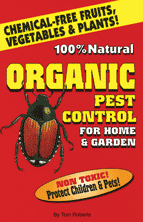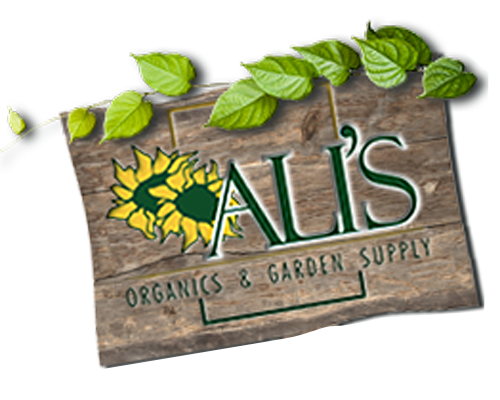Ways to Avoid or Reduce Pests and Disease Problems
Posted July 14, 2017

Ways to avoid or reduce pests and disease problems In the vegetable garden.
- Use physical barriers such as insect-proof cloth to cover crops.
- Be on the look out under leaves so problems are spotted early.
- Keep on top of hygiene so you don't spread a pest from one plant to another.
- Encourage good insects and birds that eat unwanted insects.
- Create the right environment for healthy growth.
- Rotate crops to different beds in a three or four year rotation so plant-specific pests don't increase in numbers in the same bed each year.
- Give plants a good health check before planting out. Don't import problems when buying plants.
- Companion plants such as marigold, borage and nasturtium can repel insects or attract them away from your crops.
- Hand removal and disposal of pest such as brassica caterpillars by day and slugs from beds after dark can be done easily.
- Use sticky traps where appropriate. Sticky traps catch many flying insects, including whitefly. These are particularly helpful in greenhouses.
- Choose disease resistant varieties. Plants weakened by disease are vulnerable to pest attack.
- Use biological controls. This sometimes can be the best way to deal with a major infestation of many insects that are hard to control such as grasshoppers.
There is a wide range of products available for gardeners which have been tried and tested for use on a wide range of plants, including edibles.
Sluggo & Sluggo Plus
A perfect solution for organic gardens! Sluggo will control slugs and snails by sprinkling the bait around the base of plants. Sluggo plus works on slugs and snails as well, but also controls pill bugs and earwigs. Both are safe to use around children and pets.
Grasshoppers can be a real problem, devouring many ornamentals and vegetable plants over the warm summer months. Nolo bait is safe for use in organic gardens, does not harm pets, humans or birds. It is only affective on crickets and grasshoppers.
The oil works for powdery mildew, aphids and other pests in the garden. While it is safe to use and organic it should not be sprayed on the flowers where bees and beneficial insects feed.
Garden Insect Spray (spinosad)
One of our favorite sprays to use in the vegetable gardens and orchard is spinosad. A bacteria that works well on tomato horn worms, cabbage worms, apple maggot and cucumber beetle.
Tips for using any pest or disease product
- Follow instructions to the letter! More is not better and can be harmful to your plants.
- Test on a small area of one plant first to ensure plants aren't sensitive to contents. Try to avoid growing tips.
- Mix up small quantities, use quickly and only spray affected plants.
- Apply in the evening to avoid direct sun and to allow time to pass before beneficial insects visit plants.
- Don't use in wet weather, and apply to dry leave for full effectiveness.



Comments (0 Comments)
There are no comments.
Post Comment